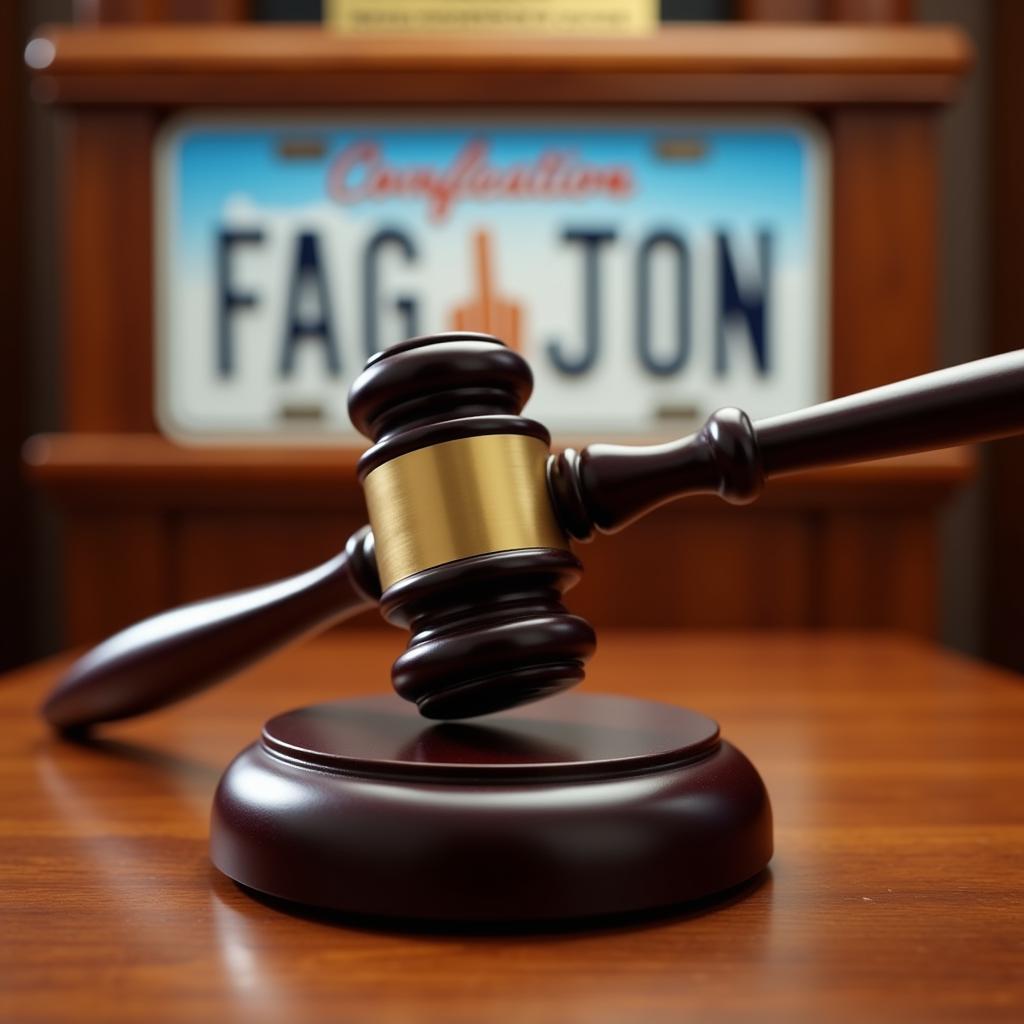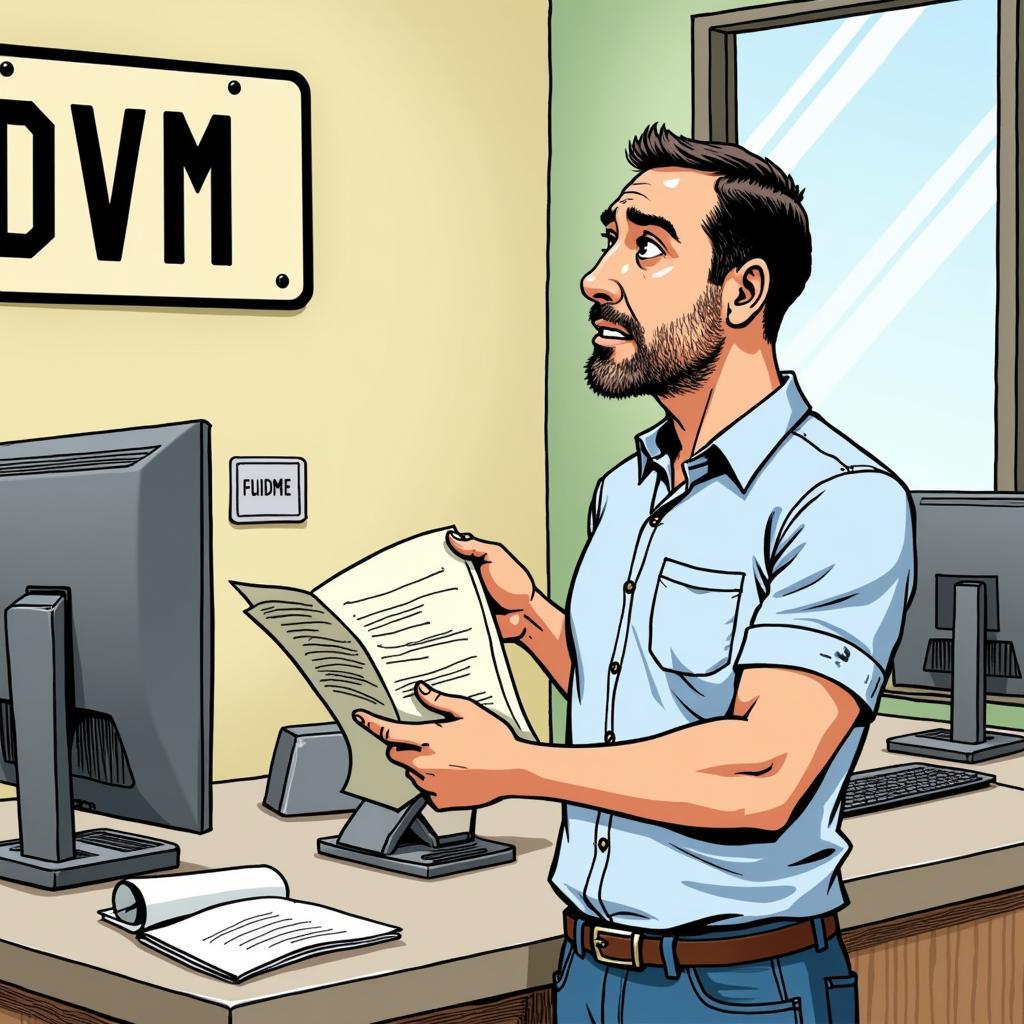Middle Finger License Plate: A Touchy Subject
October 17, 2024The “Middle Finger License Plate” – it’s a phrase that sparks curiosity, controversy, and maybe even a chuckle or two. You’ve likely seen it while scrolling online, a blurry image of a car with a license plate that’s…well, let’s just say it’s expressing a certain sentiment. But is it legal? And what does it say about free speech on the open road? Let’s dive into the fascinating and sometimes complicated world of personalized license plates, specifically those that might be considered offensive.
The First Amendment and Personalized Plates: A Balancing Act
In many countries, including the United States, personalized license plates are seen as a form of self-expression protected by freedom of speech laws. However, this freedom isn’t absolute, especially when it comes to government-issued items like license plates.
Think of it like this: you’re free to wear a T-shirt with a controversial slogan, but you can’t necessarily paint that slogan on a public building. Similarly, while you can express yourself on your license plate, there are limitations in place to prevent truly offensive or harmful messages.
 Middle Finger License Plate Court Case
Middle Finger License Plate Court Case
What Makes a License Plate “Offensive”?
The line between free speech and offensive content can be blurry, especially when it comes to humor and individual interpretations. What one person finds funny, another might find deeply offensive.
Generally, the DMV (Department of Motor Vehicles) in most states has guidelines that prohibit license plates deemed:
- Obscene: Overly focused on sexual matters or bodily functions.
- Profane: Using religious or curse words in a disrespectful manner.
- Insulting or Derogatory: Targeting specific groups based on race, religion, ethnicity, etc.
- Inciting Violence: Promoting hatred or violence against any individual or group.
So, where does the “middle finger” fall on this spectrum? It’s tricky. While it’s not a word, it’s widely understood as an offensive gesture.
The Case of the “FU” License Plate
Several real-life cases have tested the boundaries of free speech on license plates. In one notable case, a man in Maine was initially denied a license plate with the letters “FU.” He argued it was simply an abbreviation of his initials. However, the state argued that the implied meaning was clearly offensive. The case went through multiple appeals, highlighting the complexities of balancing personal expression with potential offense.
 Man Arguing License Plate at DMV
Man Arguing License Plate at DMV
The Role of Context and Intent
Context and intent play a significant role in determining whether a license plate crosses the line. A plate with a seemingly innocent combination of letters or numbers might be deemed offensive if it references something inappropriate or has a history of being used in a derogatory manner.
For example, a license plate that seems harmless on its own might be considered offensive if it references a specific hate group or discriminatory ideology.
The DMV’s Difficult Job: Gatekeeping Free Speech?
The DMV often finds itself in the tricky position of being a gatekeeper of free speech. They must weigh individual rights against the potential for offense to others. This involves considering the overall message conveyed, community standards, and legal precedents.
The process of approving personalized license plates usually involves a review by a committee or designated officials. They assess applications based on the established guidelines and make judgment calls on borderline cases. This process is not always perfect and can be subject to debate and legal challenges.
The Bottom Line: Tread Carefully with Personalized Plates
While personalized license plates offer a fun way to express yourself, it’s crucial to be mindful of the potential impact of your choices. Before you submit that application with a clever or edgy phrase, consider how it might be perceived by others and whether it aligns with the DMV’s guidelines.
Remember, the goal is to personalize your vehicle, not to incite controversy or offense.
FAQ
-
Can I appeal a DMV decision on my personalized license plate? Yes, most states have an appeal process if your application is denied. You can usually find information about this on your local DMV’s website.
-
What happens if I see a license plate I find offensive? You can report the license plate to your local DMV or law enforcement agency. They will typically investigate the complaint and take appropriate action if the plate is found to violate their guidelines.
-
Are there any nationwide restrictions on license plate content? There are no federal laws in the United States that specifically dictate the content of license plates. Each state sets its own guidelines.
-
Can I use emojis on my license plate? No, emojis are not typically allowed on license plates as they are considered graphical elements rather than letters or numbers.
Need Help with Your Personalized Plate?
Navigating the world of personalized license plates can be confusing! If you have questions or need assistance, our team is here to help. Contact us at 0963418788, email us at fandejong@gmail.com, or visit our office located at 2M4H+PMH, Phường Nghĩa Thành, Gia Nghĩa, Đắk Nông, Việt Nam. We are available 24/7 to assist you.